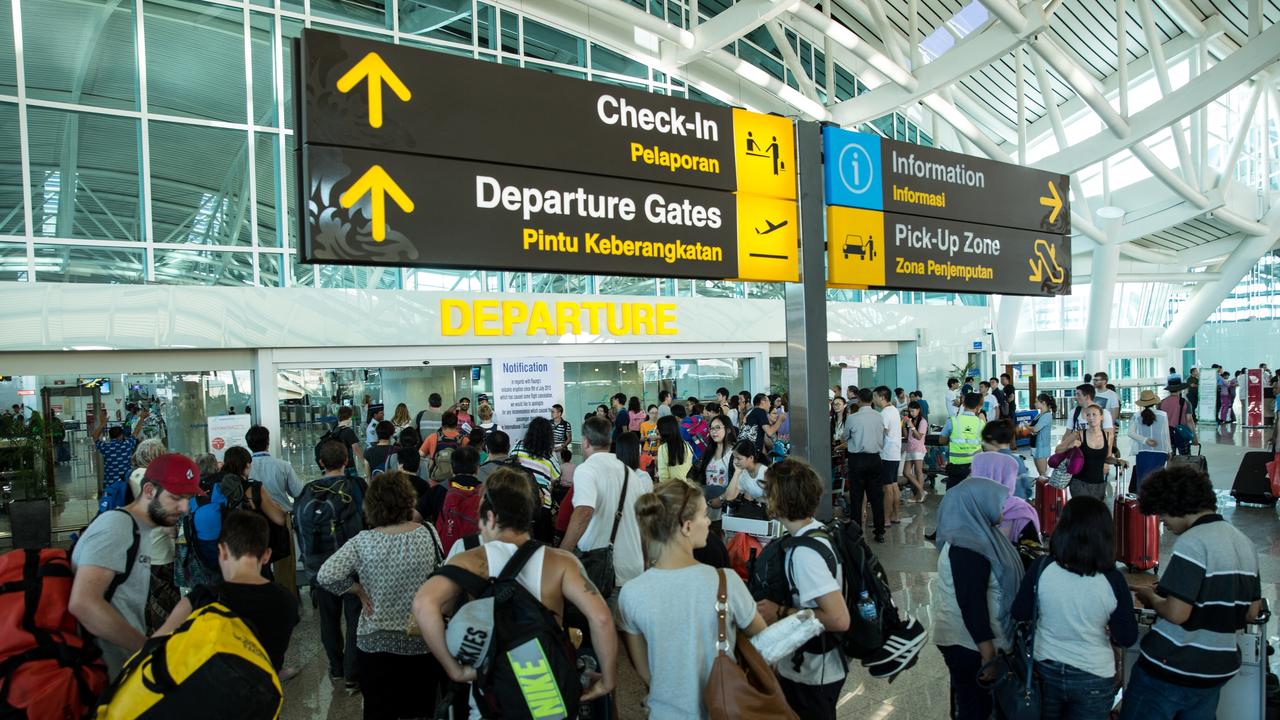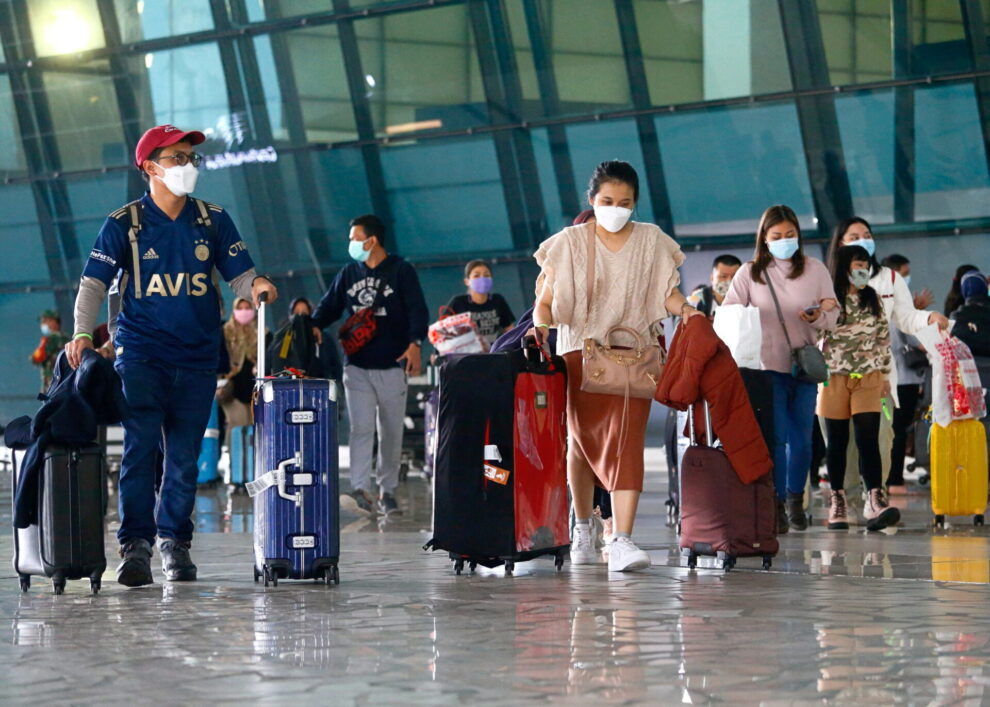Indonesia has officially scrapped its mandatory vaccination requirements for travellers.
It means foreigners heading to Bali and other parts of the country no longer need to provide proof of Covid-19 vaccination to enter or travel domestically.
Airlines checking Australians’ vaccination certificates before departing for Indonesia will no longer need to do so.
A letter from the Indonesian government’s Covid-19 Handling Task Force dated June 9 stated the change in Indonesian, but the news has only just reached local media in English.
The Australian government’s Smartraveller website was updated on Wednesday to reflect the change to entry requirements.
“You no longer need to provide proof of Covid-19 vaccination to enter Indonesia or travel domestically,” it stated.

Bali has scrapped its Covid vaccination requirements for travellers. Picture: Agung Parameswara/Getty Images
Bali is approaching its peak holiday season and Australians remain its top tourists with 109,875 Australian passport holders stamped into Bali last month alone, according to local news site The Bali Sun.
But tourism is changing on the popular holiday island with a crackdown on unruly foreign visitors.
Bali’s don’ts list
- Trespass sacred territories: Steer clear of utamaning mandala and madyaning mandala, holy and sanctified spots like puras and pelinggihs — unless you’re there for a Balinese traditional ceremony, during which you must wear the appropriate attire, and you’re not menstruating;
- Touch sacred trees;
- Engage in behavior that defiles sacred places, temples, idols, and religious symbols, such as climbing sacred structures and taking indecent or nude photos;
- Litter and pollute lakes, springs, rivers, seas, and public areas;
- Use single-use plastics like plastic bags, polystyrene (styrofoam), and plastic straws;
- Utter offensive words, behave disrespectfully, cause disturbances, and act aggressively towards government authorities, local communities, and fellow tourists, both directly and indirectly through social media, including spreading hate speech and hoaxes;
- Engage in work or business activities without proper documentation issued by the relevant authorities;
- Get involved in illegal activities, such as trading illegal goods, including endangered flora and fauna, cultural artifacts, and sacred objects, as well as illegal drugs.
Bali Governor Wayan Koster has been extremely vocal this year with his frustration over foreigners misbehaving.
He has spoken about wanting to put a cap on tourist numbers, stopping Russian and Ukrainian tourists from being allowed to get a visa on arrival, and wants all foreign tourists banned from renting motorbikes.
A fortnight ago, Mr Koster released the administration’s official dos and don’ts guidelines for international tourists.
There is a total of 20 rules — 12 under dos and eight under don’ts and Mr Koster warned tourists that don’t abide will face severe consequences, including penalties and legal proceedings as prescribed by Indonesian law.
Source: News















